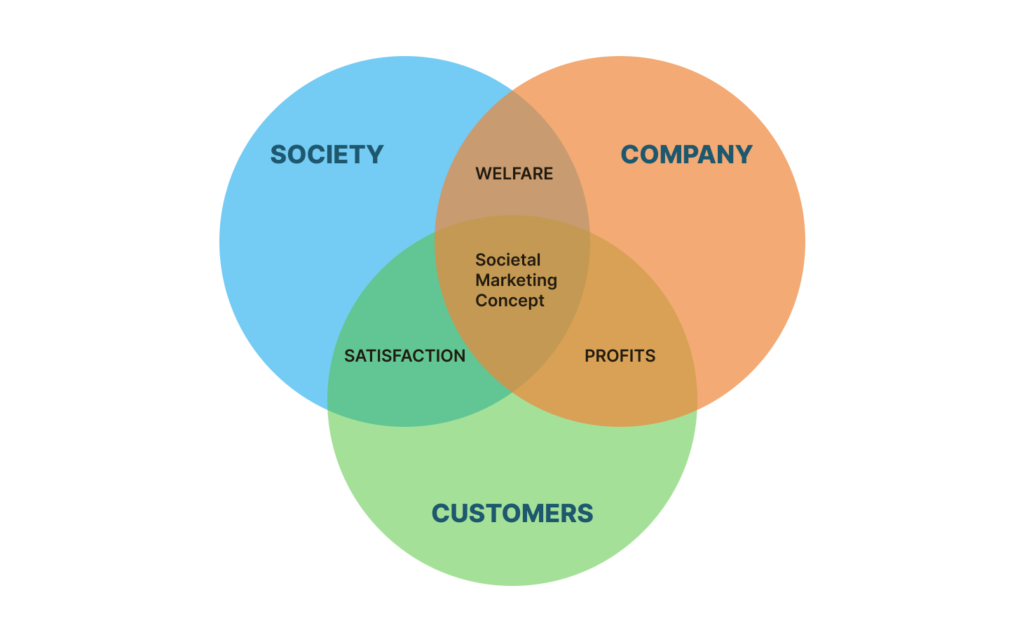Spoiler: Doing ‘good’ is good for business
Once in a while, we have brand campaigns that don’t just sell but stick—in minds, in conversations, and in culture.
There was a time when the feminine hygiene brand ‘Always’ flipped an insult on its head with #LikeAGirl. And when the World Health Organization’s #5ADay turned fruit and veggies from a chore into a global health movement. Or when Australia’s cancer council’s #SunSmart campaign drilled “Slip, Slop, Slap” into an entire generation’s brain, making sunscreen as essential as sunglasses.
These aren’t just ads; they’re movements. It’s marketing that can do two things at the same time: sell products and move people. In other words: Societal marketing.
Societal marketing is where businesses realize that profit and purpose aren’t enemies—they’re partners. In a world where consumers are savvier and have a million options at their fingertips, companies that align their brand with bigger causes don’t just win sales—they win loyalty.
Philip Kotler, the father of modern marketing, defines societal marketing as a strategy where marketing efforts “preserve or enhance the consumer’s and society’s well-being.”
Dawson referred to societal marketing by suggesting “The Human concept’ entails a widening of business concerns on three levels: the internal environment (human resources within the organization); the proximate environment (consumers, competitors, suppliers and distributors); and the ultimate environment (society) in general.”
According to Sirgy, “Societal marketing orientation posits that marketing success is likely to be mostly based on serving the many stakeholders of the firm and balancing their demands.”
And renowned ethics researchers, Drumwright and Murphy, say societal marketing encompasses “marketing initiatives that have at least one non-economic objective related to social welfare, and use the resources of the company and/or one of its partners.”
Our grandfather’s business playbooks had one P: Profit.
Today, the smartest brands swear by three: Profit, People, and Planet.

Today, doing good is good for business.
Societal marketing isn’t just a feel-good trend.
It’s built on three core pillars: social responsibility, sustainability, and ethics.
Brands that get it right don’t just talk the talk; they walk it, run it, and sometimes, even donate a pair of shoes while they’re at it.
If your marketing doesn’t help society, what’s the point? Take Nike, for example. Nike’s marketing campaigns have long championed social justice, from its support of Colin Kaepernick to its “You Can’t Stop Us” campaign, promoting inclusivity and perseverance.
L’Oréal goes beyond beauty, offering free haircuts and makeup services to cancer patients through its “Look Good Feel Better” initiative.
Warby Parker’s “Buy a Pair, Give a Pair” program provides glasses to those in need, and TOMS built its entire brand on giving away a pair of shoes for every pair sold.
The modern consumer isn’t just looking for quality; they’re looking for sustainability.
That’s why Patagonia’s entire ethos is built on environmental activism, from recycled materials to repair programs. Tesla is redefining sustainable transport, Apple is investing in renewable energy, and Coca-Cola, despite selling bottled drinks, offsets its impact with water stewardship programs.
Marketing without ethics is just manipulation.
The Body Shop was fighting against animal testing long before “clean beauty” was a buzzword. And Seventh Generation built trust by being brutally honest about its ingredients.
Societal marketing isn’t about slapping a “sustainable” label on a product and calling it a day.
Once upon a time, it was enough for brands to impress consumers. Now? They need to impress conscious consumers—especially Gen Z. These digital natives don’t just buy products; they buy into values. A 2023 McKinsey report found that 65% of Gen Z actively seek out brands that align with their social causes—and they’re not afraid to cancel those that don’t.
But here’s the catch: fake it, and they’ll break you. Greenwashing, aka, slapping an “eco-friendly” sticker on a product without real change—is no longer an option. Brands need real action. B Corp-certified businesses, like Ben & Jerry’s and Allbirds, prove their commitment to both people and the planet. As does Patagonia – they don’t just sell sustainable gear; they repair and recycle it.
Next up in marketing? Stakeholder Capitalism. Forget the old-school playbook where businesses existed solely to line shareholders’ pockets. Businesses are increasingly seeing stakeholder capitalism – aka – the idea that businesses shouldn’t just chase profits for shareholders but should also look out for employees, customers, communities, and the planet. In practice, this is Unilever committing to sustainable sourcing and fair wages. It’s Nestlé investing in regenerative agriculture to support farmers and the planet. It’s the realization that companies thrive when the ecosystems around them do too.
Basically, it’s about making money without being a corporate villain.
The game has changed. Societal marketing matters now more than ever.
Let’s get one thing straight—societal marketing isn’t just about feeling good. It’s about winning. And no, it doesn’t mean sacrificing profits.
In fact, a Harvard Business Review study found that companies embracing societal marketing consistently outperform their competition. Why? Because nearly two-thirds of global consumers believe they have a responsibility to buy products that benefit the environment and society. That’s a huge market of conscious consumers ready to vote with their wallets.
Besides, when it comes to people, logic isn’t always king. If people made purely rational choices, gym memberships wouldn’t be collecting dust by February. Humans are driven by emotion, convenience, and good vibes. Businesses that tap into this—by making ethical choices feel good and easy—win big.
Here’s Why Societal Marketing Works:
Societal marketing is the future. And the companies embracing it are making a difference and making banks.
Societal marketing sounds great—and is great – but in a high-stakes balancing act, one wrong step can turn good intentions into a PR nightmare.
Take Unilever for example. In 2023, it found itself in hot water for continuing operations in Russia during the Ukraine war. Consumers and activist groups demanded they pull out, but Unilever held its ground, arguing that providing essential goods took priority. The result? A branding minefield where the company had to juggle ethics, business interests, and global politics.
Here are some societal marketing pitfalls to know about:
Here’s how to implement societal marketing correctly:
Make it real. If you’re going to champion a cause, back it up with real action—not just a hashtag.
Next, know your audience. Not every social cause resonates with every customer – and the same is true for your employees. Ensure your team is onboard.
Use clear messaging across the right channels, and add ‘Call To Actions’ that resonate with your audience. You can use paid social media advertising, influencer marketing, user-generated content, or even sponsored content.
Tailor your messaging so it doesn’t feel forced or alienating.
And lastly, think long-term. Societal marketing isn’t a one-off PR stunt; it’s a commitment. You’ll need to measure and adjust campaigns based on results. The brands that win in this space play the long game, integrating social responsibility into their DNA.

Done right, societal marketing builds trust, loyalty, and long-term success.
Done wrong? Well, let’s just say the internet never forgets.
Here’s what societal marketing is not.
It’s not about guilt-tripping customers or hopping on every social justice bandwagon for PR points. And it’s definitely not about making a quick buck at society’s expense.
Business practices that completely miss the mark are:
Companies that get it right don’t just preach—they practice. They create products and services that satisfy consumer needs without wrecking the planet. They build long-term trust and loyalty. And they differentiate themselves from competitors riding the trend wave.
‘Societal marketing’ sometimes goes by societal advertising, sustainable marketing, or ethical marketing—it’s all (almost) the same. It’s also used synonymously with social marketing, though there’s a slight difference; Social marketing (usually targeted at individuals) is specifically used to drive social change (think anti-smoking educational campaigns or healthy eating research initiatives).

On the other hand, societal marketing (targeted at groups or entire societies) balances profitability, consumer needs, and societal well-being – its business strategy that benefits all stakeholders involved.
Societal marketing isn’t just some feel-good fad—it’s a strategic power move.
Think of it like planting a tree. Sure, it takes time, effort, and patience. There will be skeptics, greenwashing accusations, and the occasional PR nightmare. But down the road, your business will have the shade and oxygen it needs to keep going and a rock-solid brand reputation.
So, if you’re an entrepreneur, executive, or brand strategist, here’s your cue: Stop treating societal marketing like a budget-draining obligation, and start seeing it for what it is—a long-term investment in both profit and purpose.

Email subscription is available ONLY TODAY (oh, okay, and tomorrow).
Surely, we respect your inbox! Unsubscription works every day.

 Just curious…
Just curious…We’d love to tailor your experience — which of these best describes you?